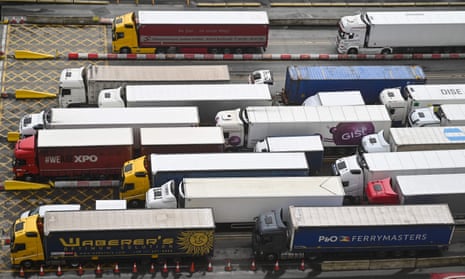
Newly announced post-Brexit import fees have sparked outrage among British small businesses, warning that they could potentially erase profits and render importing certain products unfeasible.
Trade bodies, retailers, and small firms have expressed concerns about the impact of the new charges, which could lead to a reduction in the range of items offered and potential price increases.
The government’s Border Operating Model, set to introduce checks on goods entering the UK through Dover and the Eurotunnel on April 30, will impose charges of up to £145 for each consignment, affecting importers of plant and animal products.
Importers of “low risk” goods will pay £10 for each product line, while those bringing in medium and high-risk goods will have to pay £29 for each item type, potentially burdening small businesses with thousands of pounds in additional costs.
The Fresh Produce Consortium’s chief executive, Nigel Jenney, warned that small businesses may have to reduce their range of available products or accept the costs, leading to food inflation funded by consumers.
The Institute of Export & International Trade’s director general, Marco Forgione, emphasized that small businesses would bear the full force of the charges, potentially wiping out entire profits.
The Horticultural Trade Association highlighted the impact on small plant sellers, while business owners expressed concerns about the feasibility of importing products from the continent due to the new charging regime.
The chief executive of the London food market chain Mercato Metropolitano, Andrea Rasca, warned that the new fees and time-consuming checks would discourage European businesses from sending goods to the UK, ultimately reducing the variety of products available.
The potential consequences of the new import fees have raised significant concerns among small UK businesses, with fears of disappearing profits and limited product offerings.
2024-04-04 12:29:40
Article from www.theguardian.com












